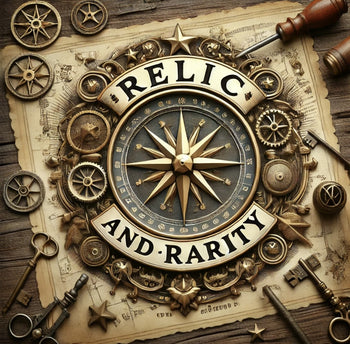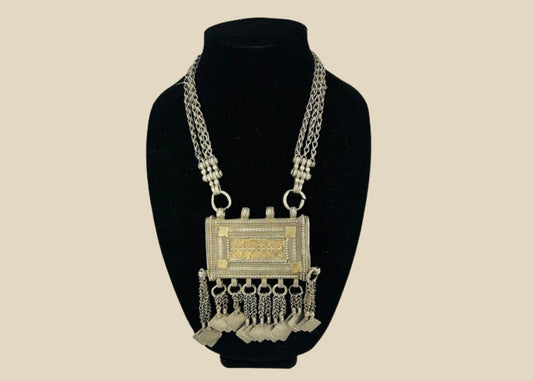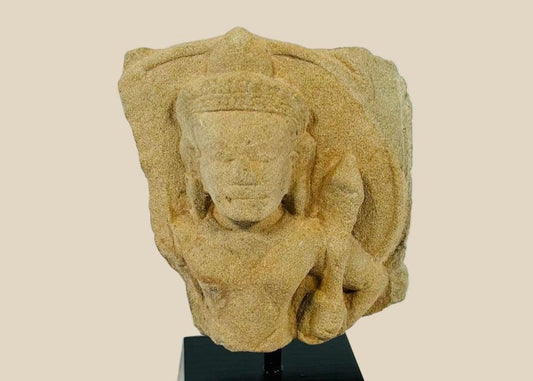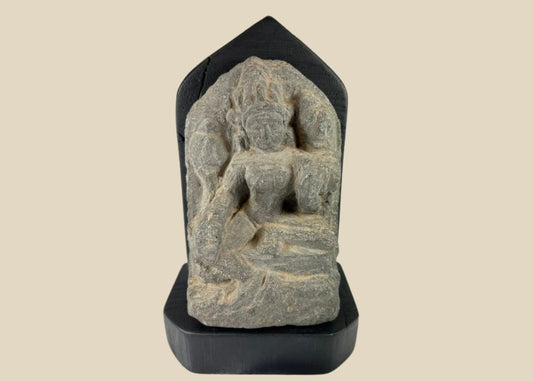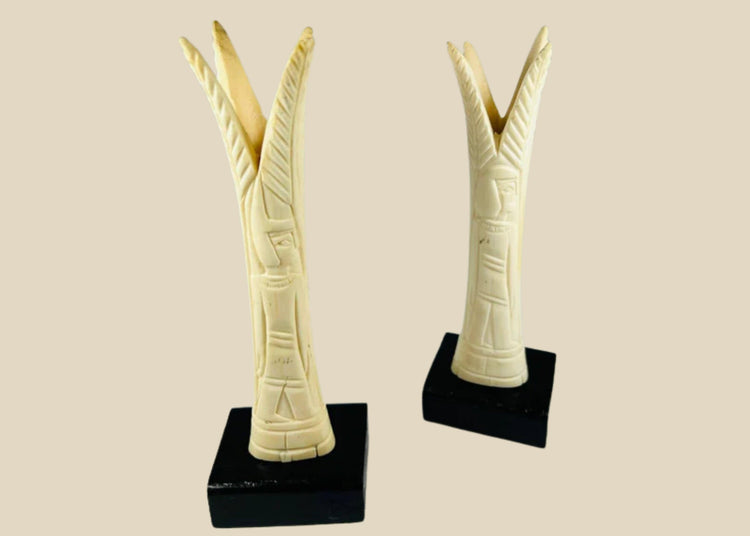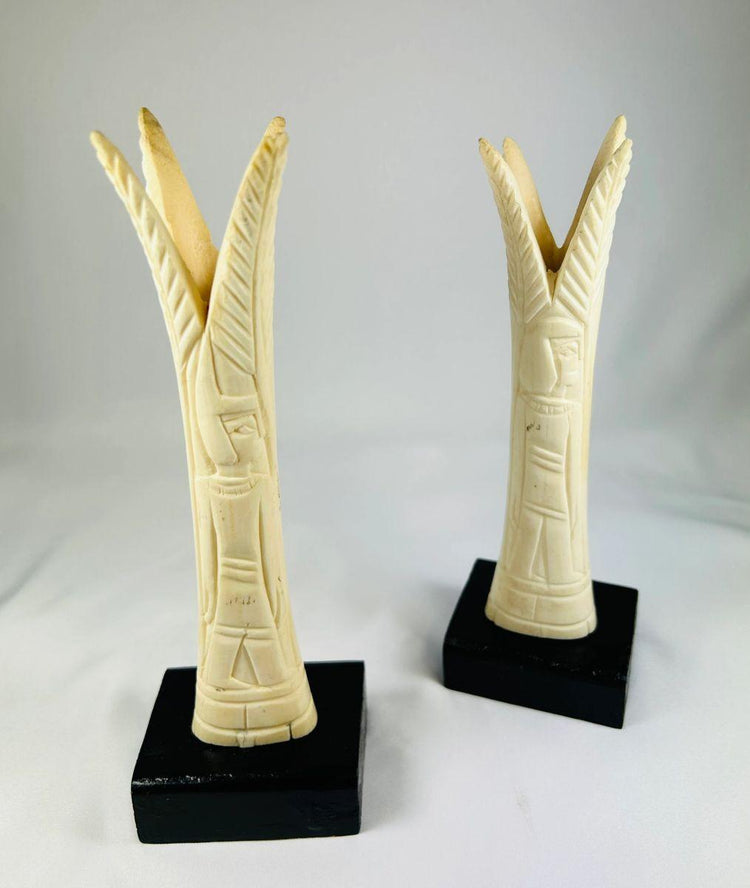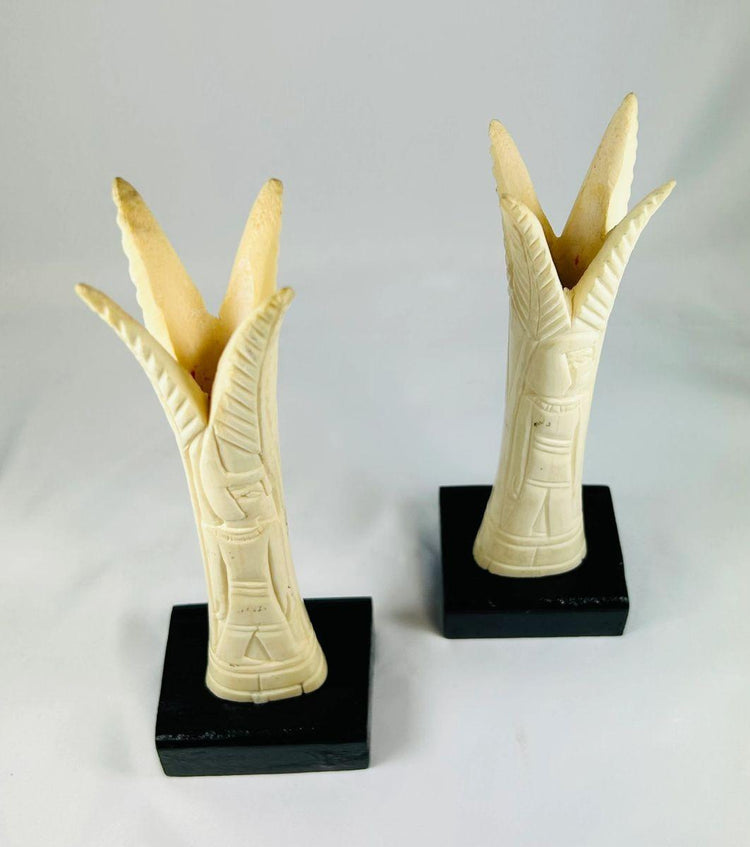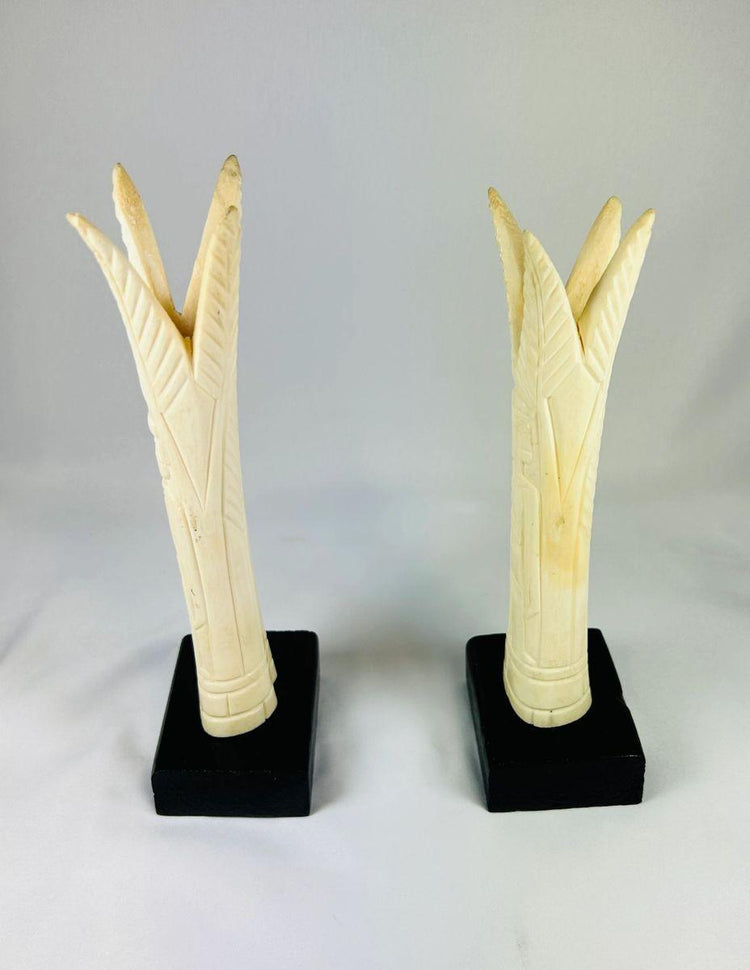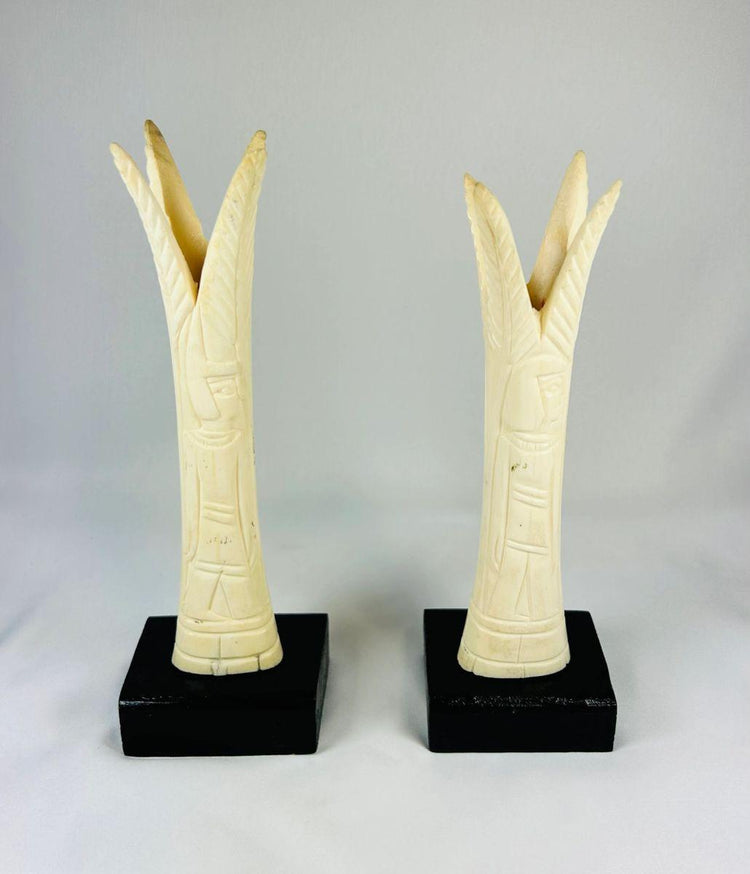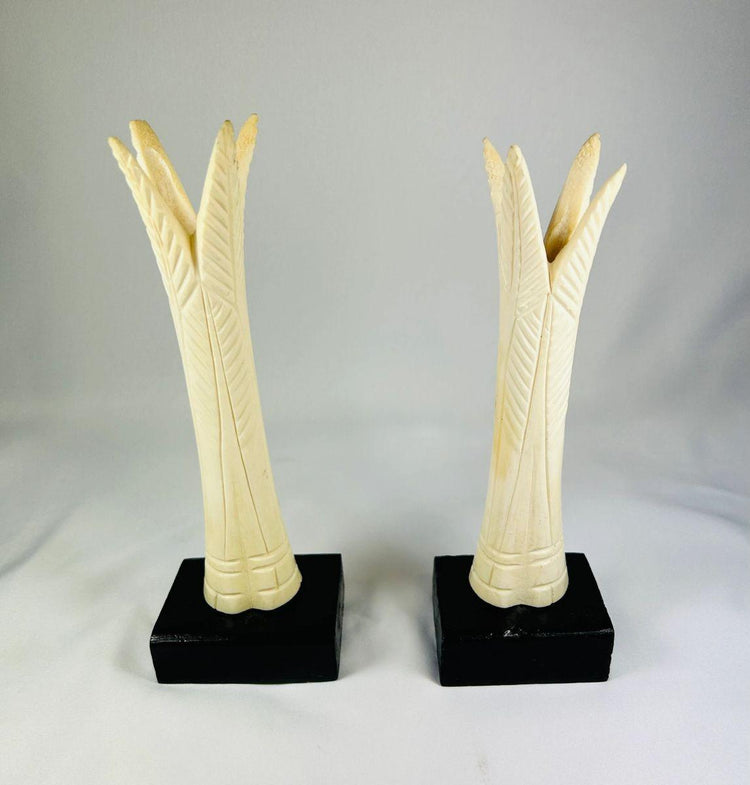Egyptian Carved Candle Stick Holders | Early 20th Century
Description
More
Less
Historical Context & Origin
Region: Egypt
Material: Hand-carved bone on modern display bases
Period: Likely early 20th century, inspired by ancient Egyptian iconography
Description
This pair of intricately carved bone candlestick holders exemplifies the enduring symbolism of ancient Egypt. Designed to resemble the papyrus stalk and lotus flower—two of the most powerful and sacred symbols in Egyptian culture—these pieces combine functionality with profound artistic meaning. Their graceful, stylized forms recall the religious and spiritual traditions of Egypt, where natural motifs carried messages of rebirth, life, and cosmic balance. Each candlestick is mounted on a modern black base, enhancing their display potential for both collectors and connoisseurs of symbolic art.
Features
- Carved bone in the form of lotus and papyrus, central symbols in Egyptian belief
- Lotus flower: representing regeneration, resurrection, and the sun’s eternal cycle
- Papyrus stalk: symbolizing life, sustenance, and the fertile abundance of the Nile
- Fine craftsmanship with intricate carved details that mirror Egyptian temple and tomb decoration
- Mounted on modern black bases for secure and elegant presentation
Cultural Significance
The lotus and papyrus held unparalleled importance in ancient Egyptian culture. Together, they represented the unity of Upper and Lower Egypt and the dual forces of creation and renewal. The lotus, closing and reopening with the sun, was tied to the solar cycle and the promise of rebirth. The papyrus, vital for writing, food, and ritual use, embodied life and prosperity drawn from the Nile. Objects styled after these plants were not mere decorations—they conveyed deep symbolic associations, whether used in temples, tombs, or homes. These candlesticks reflect that long tradition, serving both functional and symbolic roles, linking their owners to the divine order of life and rebirth.
Condition
Both candlestick holders are in excellent condition, with delicate carvings preserved and only minor wear consistent with age. The rich bone surface shows subtle patina that enhances their authenticity and character. The later black bases ensure secure display while complementing their timeless aesthetic.
Dimensions (approximate)
Height: 9.25 in each
Age
Circa early 20th century
Learn More
Explore the Fascinating History of Candlesticks — From Ancient Rituals to Modern Design
Explore Our Curated Collection of Authentic Ancient Egyptian Artifacts
Description
Historical Context & Origin
Region: Egypt
Material: Hand-carved bone on modern display bases
Period: Likely early 20th century, inspired by ancient Egyptian iconography
Description
This pair of intricately carved bone candlestick holders exemplifies the enduring symbolism of ancient Egypt. Designed to resemble the papyrus stalk and lotus flower—two of the most powerful and sacred symbols in Egyptian culture—these pieces combine functionality with profound artistic meaning. Their graceful, stylized forms recall the religious and spiritual traditions of Egypt, where natural motifs carried messages of rebirth, life, and cosmic balance. Each candlestick is mounted on a modern black base, enhancing their display potential for both collectors and connoisseurs of symbolic art.
Features
- Carved bone in the form of lotus and papyrus, central symbols in Egyptian belief
- Lotus flower: representing regeneration, resurrection, and the sun’s eternal cycle
- Papyrus stalk: symbolizing life, sustenance, and the fertile abundance of the Nile
- Fine craftsmanship with intricate carved details that mirror Egyptian temple and tomb decoration
- Mounted on modern black bases for secure and elegant presentation
Cultural Significance
The lotus and papyrus held unparalleled importance in ancient Egyptian culture. Together, they represented the unity of Upper and Lower Egypt and the dual forces of creation and renewal. The lotus, closing and reopening with the sun, was tied to the solar cycle and the promise of rebirth. The papyrus, vital for writing, food, and ritual use, embodied life and prosperity drawn from the Nile. Objects styled after these plants were not mere decorations—they conveyed deep symbolic associations, whether used in temples, tombs, or homes. These candlesticks reflect that long tradition, serving both functional and symbolic roles, linking their owners to the divine order of life and rebirth.
Condition
Both candlestick holders are in excellent condition, with delicate carvings preserved and only minor wear consistent with age. The rich bone surface shows subtle patina that enhances their authenticity and character. The later black bases ensure secure display while complementing their timeless aesthetic.
Dimensions (approximate)
Height: 9.25 in each
Age
Circa early 20th century
Learn More
Explore the Fascinating History of Candlesticks — From Ancient Rituals to Modern Design
Explore Our Curated Collection of Authentic Ancient Egyptian Artifacts
You May Also Like
